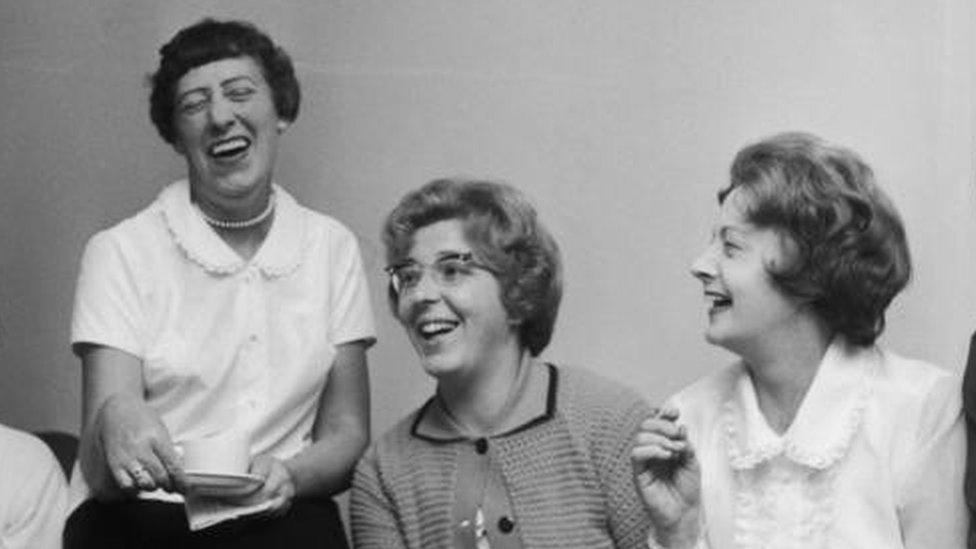Women still do more household chores than men, ONS finds
- Published

Women still do more housework and childcare than men, especially between the ages of 26 and 35, figures show.
The Office for National Statistics said that, when it came to unpaid chores at home, women were doing almost 40% more than men on average.
Men averaged 16 hours a week helping out at home compared with 26 by women, with those on maternity leave doing the most.
The area men do more in is transport, such as driving family members around.
The figures come from ONS analysis of research, external from two different sources on how people use their time at home.
In the report, the ONS defined unpaid work as work which households do themselves but could pay someone else to do for them.
Women aged 26 to 35 did the most unpaid work, at 34 hours a week, while women on maternity leave averaged as much as 60 hours a week based on 2015 figures.
In 2015, full-time students did 12 hours of unpaid work a week on average, while the ONS found that people over the age of 56 did the most cooking and laundry.
The ONS calculated that women would earn £259 a week on average if this unpaid work was remunerated, while men's efforts would earn £166 a week on average.
The statistics also revealed that the average amount of time parents devoted to childcare had fallen slightly since 2000, while increasing for the over-60s.
The research sources were statistical bulletins Household satellite account: 2005 to 2014, external and Changes in the value and division of unpaid care work in the UK: 2000 to 2015, external.
Eleanor Taylor, a researcher at Natcen which conducts the British Social Attitudes survey, said the ONS findings were "no surprise".
She said despite declining support for traditional gender divisions of labour over the past 30 years, substantial support remains for women having the primary caring role for young children.
Oriel Sullivan, professor of sociology of gender at Oxford University said three barriers were halting the shift in the balance of roles in the home.
Gender ideology, government policy and the workplace all had to be reconsidered to make provisions so it was easier for men to be at home and do their fair share, Prof Sullivan said.
The findings follow other recent research into the division of labour in the home.
In March, an Oxfam poll, external concluded UK women living with their partners spent an average of two working days a month more than men on housework and childcare.
Two Oxford University academics, in August, found that women do 74 minutes more housework a day than men after analysing 50 years of data. , external
- Published7 April 2016

- Published24 September 2016

- Published10 November 2016
